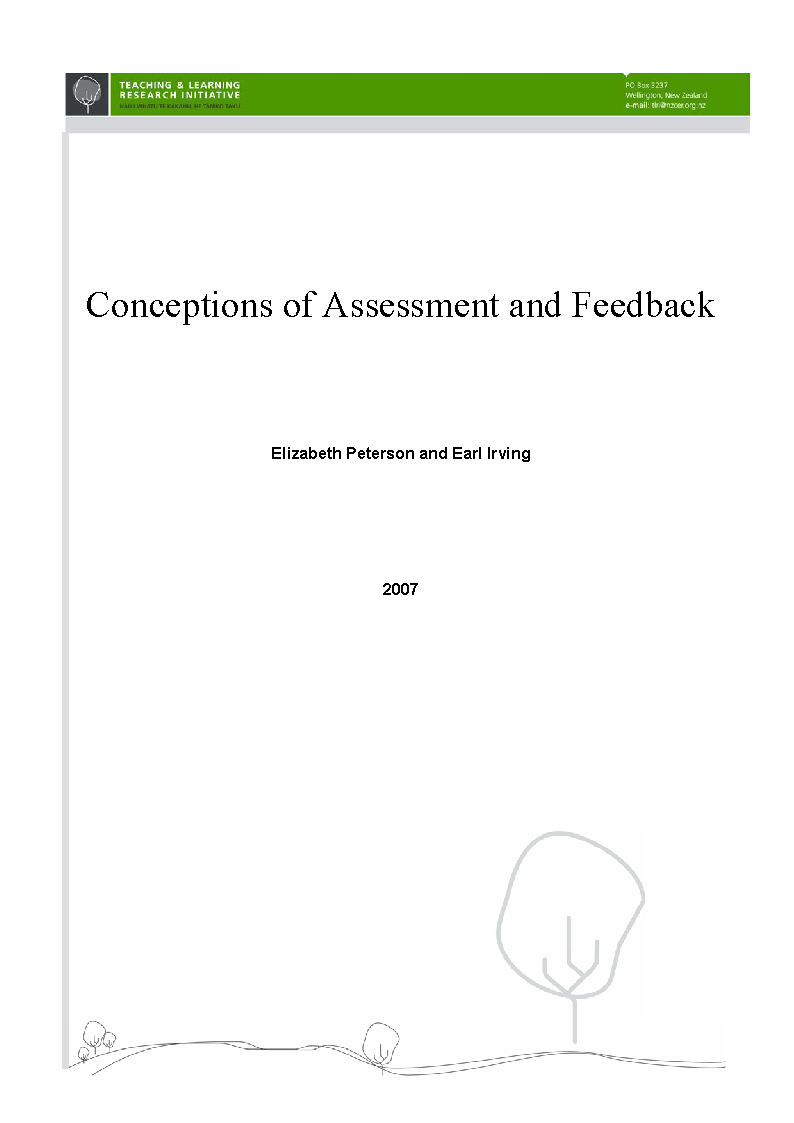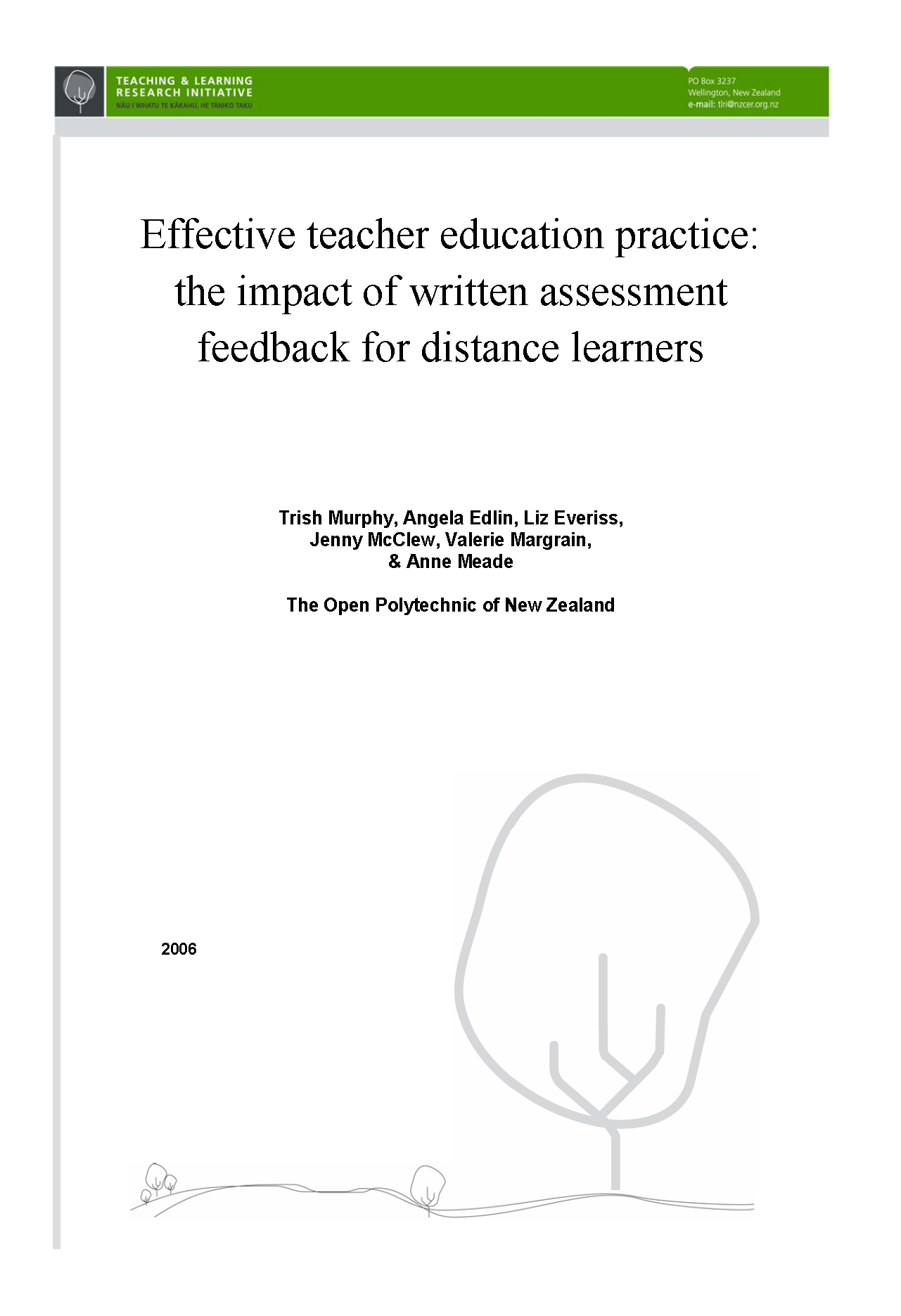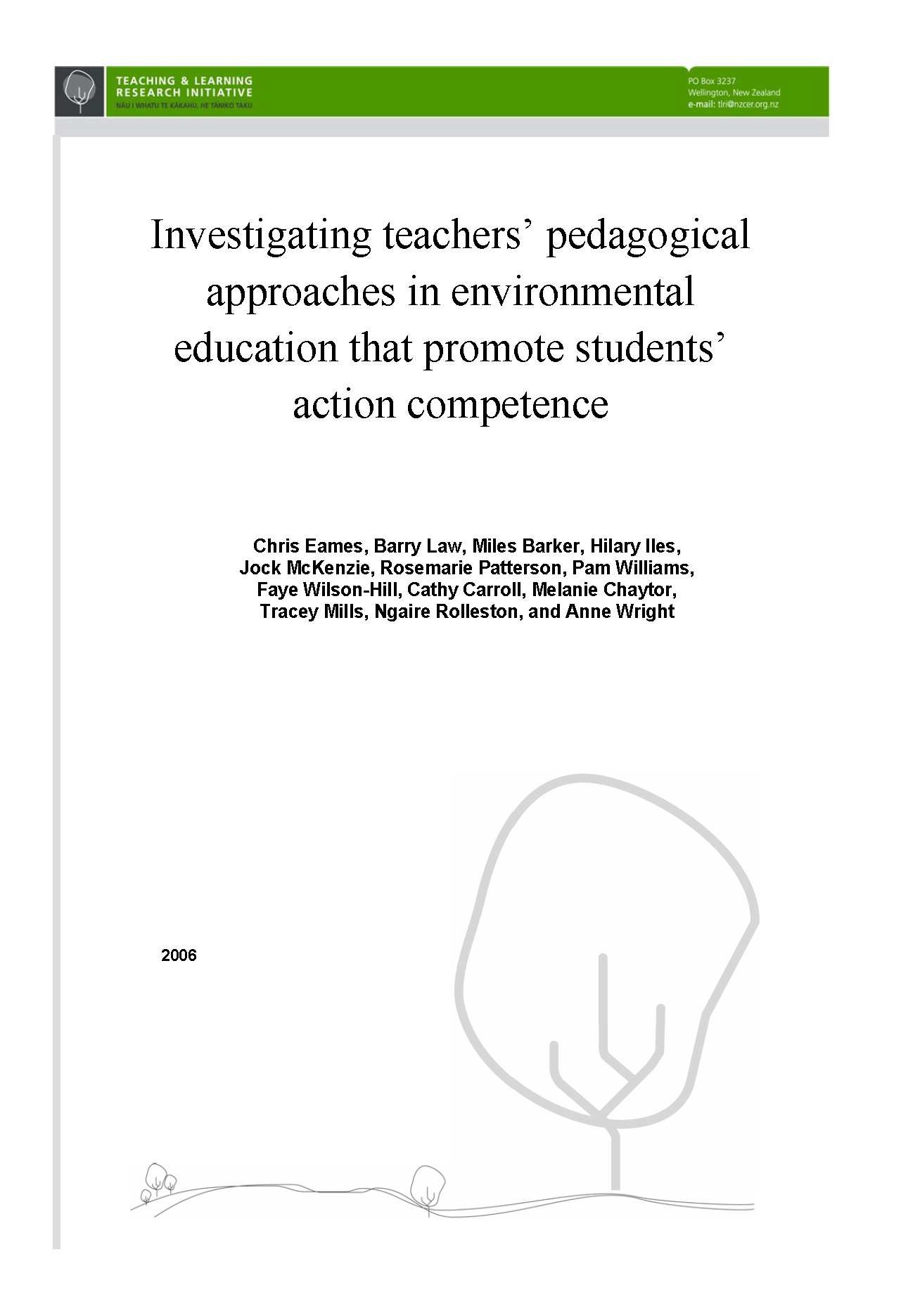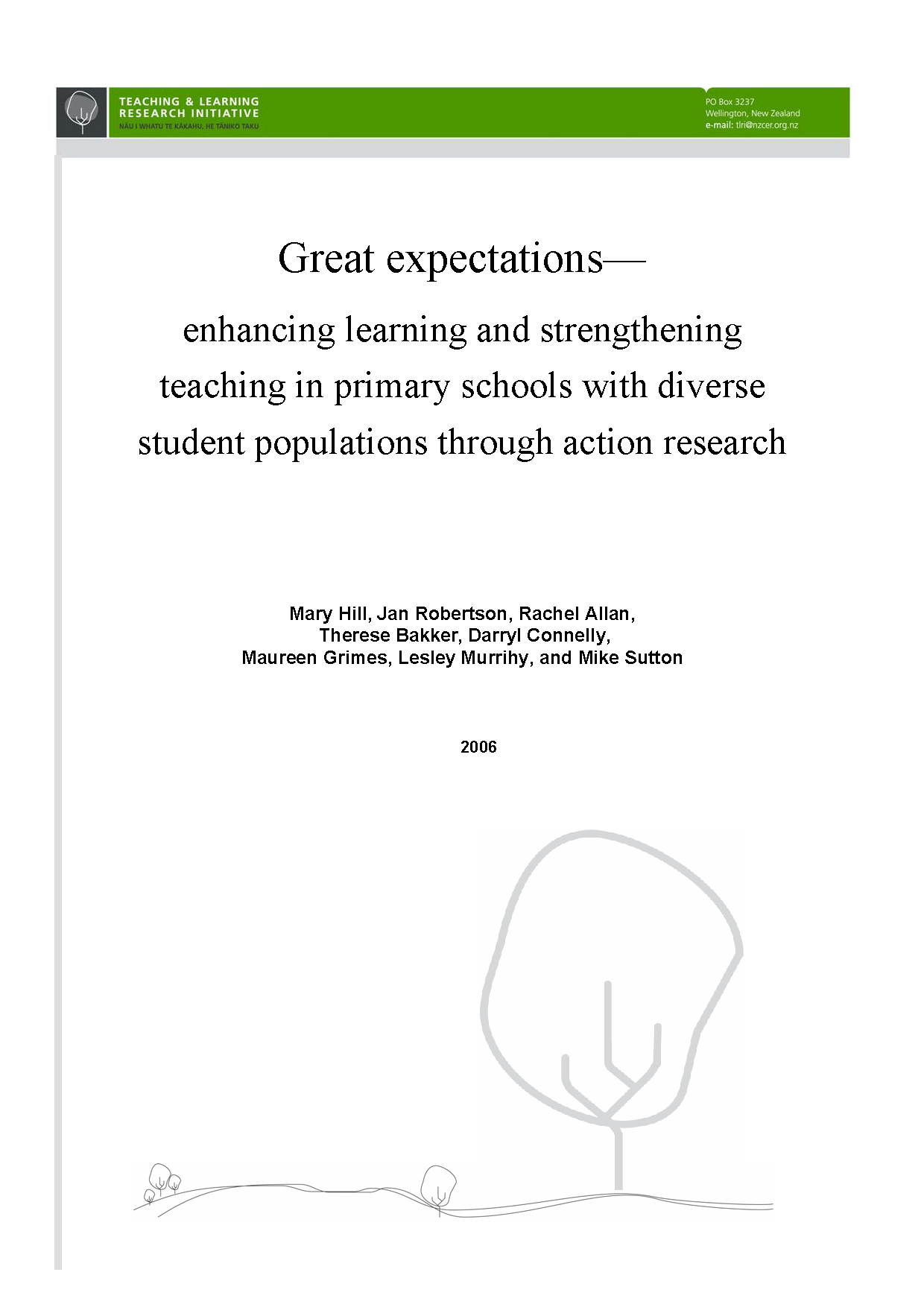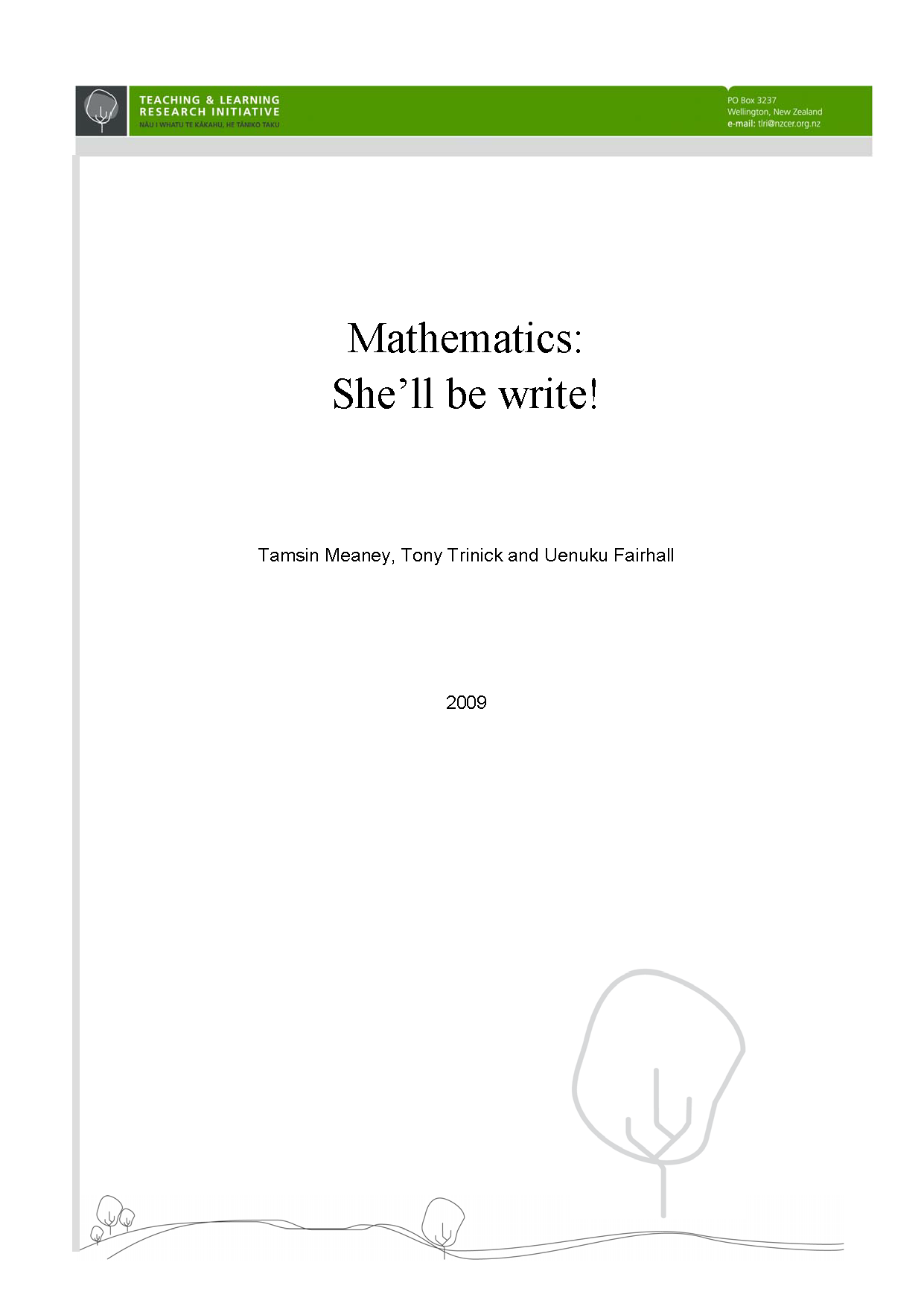
Mathematics: She’ll be write!
1. Introduction – Mathematics: She’ll be write! How students learn to speak, read, and write science and mathematics, and what is taking place in the classroom, laboratory, or informal learning context are critical areas for research. (Lerman, 2007, p. 756) The focus of this Teaching and Learning Research Initiative (TLRI) project was to discover effective ways to develop students’ mathematical writing in te reo Māori. It was assumed that this would lead to better understanding of mathematics. The investigation was undertaken at Te Kura Kaupapa Māori o te Koutu which caters for students from Years 0–13, many of whom are second language users of te reo Māori. It involved all the

